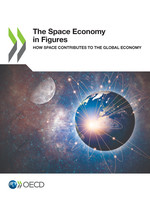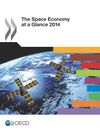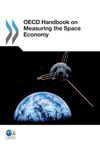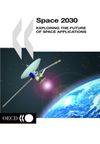OECD Space Forum
About our work
The OECD Space Forum, within the OECD Directorate for Science, Technology and Innovation, is a unique international group whose mission is to investigate the economic and innovation dimensions of the space sector within the larger economy and society. Co-operating with the space community and different OECD bodies, the Space Forum undertakes two main types of activities:
- Dedicated work on statistics and economic indicators, so as to contribute with other actors to the emergence of international comparative data on the space sector and its contribution to economic activity more broadly, including its role for innovation;
- Research on policies, exploring the impacts of public space investments and the broad economic and social dimensions of space applications, as well as contributing OECD evidence to expert communities (e.g. through international workshops on methodologies and specific applications).
As part of its work, the Space Forum contributes to broader priorities of the OECD Committee for Scientific and Technological Policy (CSTP), such as ongoing work on the digitalisation of science, technology and innovation, and the role of emerging technologies for addressing grand challenges and the S&T Policy 2025 initiative. Most recently, our work has concentrated on space technology transfers (definitions, indicators, evaluation) and research on different ways to involve commercial actors in the development of the space sector, examining the economic rationales and policies that can support – or not – risk-sharing and commercialisation. A ground-breaking project is ongoing to examine the value and sustainability of space-based infrastructure in close collaboration with selected universities/research centres around the world.
Steering group
Members are comprised of national and international space agencies:
- ASI (Italy)
- CNES (France)
- CSA (Canada)
- DLR (Germany)
- KARI (Korea)
- NASA (United States)
- NOSA and Ministry of Trade, Industry and Fisheries (Norway)
- NSO (The Netherlands)
- SSO (Switzerland)
- UKSA (United Kingdom)
- European Space Agency (ESA)
Our publications
Recent papers
- International, North American and European statistical classifications for space economy measurement, co-publication by the OECD, the United States Bureau of Economic Analysis (BEA), the European Space Agency (ESA), Eurostat and the European Commission’s Joint Research Centre (JRC), December 2023
- Harnessing "new space" for sustainable growth of the space economy, report prepared for the 4th edition of the G20 Space Leaders meeting, July 2023
- A new landscape for space applications: Illustrations from Russia’s war of aggression against Ukraine, November 2022
- Space economy for people, planet and prosperity, input for discussions at the G20 Space Economy Leaders' meeting, September 2021
- Space technology transfers and their commercialisation, July 2021
- Evolving public-private relations in the space sector: Lessons learned for the post-COVID-19 era, June 2021
- Measuring the economic impact of the space sector: Key indicators and options to improve data, OECD background note for the G20 Space Economy Leaders' Space20 meeting, September 2020
- The impacts of COVID-19 on the space industry, August 2020
- Space sustainability: The economics of space debris in perspective, April 2020
Books
The Space Economy in Figures: Responding to Global Challenges (December 2023)
Efforts to respond to global challenges have greatly benefited from space technologies that are more advanced, perform more efficiently and are operating at greater scale than ever before. But as the challenges facing society grow and intensify, questions arise as to whether the space sector can continue to deliver on its promise. Reaping the full benefits of what space activities have to offer will require substantial and targeted government action. Key priorities include maintaining the continuity and quality of government civilian missions, levelling the playing field for private actors entering the market, and securing the orbital environment for future generations.
This 2nd edition of The Space Economy in Figures delves into these topics, drawing from both established and novel economic and policy data sources.
Earth's Orbits at Risk: The Economics of Space Sustainability (September 2022)
Satellite data and signals provide crucial inputs to many economic activities, but society’s dependence on space infrastructure is at a critical juncture. In 2021, more satellites were launched into space than in the entire decade prior, and over the next five years public and private actors worldwide are planning to launch tens of thousands more satellites into Earth’s orbit. This will greatly expand and enrich the use of space resources, but it will also result in more crowded orbits and greater risk of damage from satellite collision and space debris.
The long-term sustainability of space-based infrastructure on orbit and beyond is set to emerge as an increasingly important space policy issue of the 21st century. This publication takes stock of the growing socio-economic dependence of our modern societies on space assets, and the general threats to space-based infrastructure from debris in particular.
OECD Handbook on Measuring the Space Economy, 2nd edition (July 2022)
Much has changed in the space economy over the past decade, with an ever-growing number of countries and business enterprises involved in space activities. Yet despite progress made in the quality and availability of data, the international comparability of space economy statistics remains limited.
A decade after its first publication in 2012, this revision of the OECD Handbook on Measuring the Space Economy reflects the changing landscape of space activities, space technologies and subsequent evolving user needs. The new edition aims to encourage and facilitate data collection among both incumbent and new actors involved in space activities, respond to the needs of the public agencies that still fund the bulk of space programmes, and provide an introduction to industry and private decision-takers who will also benefit from improved statistics on the space economy.
The Space Economy in Figures: How Space Contributes to the Global Economy (June 2019)
The space economy is expanding and becoming increasingly global, driven by the development of ever-more governmental space programmes around the world, the multiplication of commercial actors in value chains, durable digitalisation trends, and new space systems coming of age. This report describes these emerging trends using new and internationally comparable data and indicators. It highlights the growing importance of space activities for the economy, for developing country strategies (based on original official development assistance statistics), for the pursuit of knowledge and scientific discoveries, and for society in general. To get the most out of space investments and promote sustained socio-economic growth, this report provides some recommendations to countries in building up their statistical evidence on space actors and activities.
Space and Innovation (October 2016)
After decades of innovation, satellites now play a discrete but pivotal role in the efficient functioning of modern societies and their economic development. This publication provides the findings from an OECD Space Forum project on the state of innovation in the space sector, with a view to examine how space innovation may impact the larger economy. New analysis and indicators contribute to answering some of the following questions: is the space sector still a driver for innovation in the 21st century? What are the determinants for an innovative space sector? And what are the policy responses to encourage and harness better space-related innovation?
The Space Economy at a Glance (2014)
Countries with long-established space programmes face growing challenges as lower costs and technological advances draw more countries and companies into the sector and give rise to a burgeoning commercial space industry. This report shows that while space budgets in OECD countries totalled USD 50.8 billion in 2013, down from USD 52.3 billion in 2008, the combined space budget of the BRICs (Brazil, Russia, India and China) swelled to USD 24.0 billion from USD 16.5 billion over the same period. Supply chains for spacecraft, launchers and parts are increasingly globalised, IT companies are becoming satellite operators and rapid growth in small satellite launches will mean more commercialisation of earth observation data. This will increase the opportunities for start-ups and emerging economies to get into the space sector, but it means governments should keep up their spending on space R&D.
OECD Handbook on Measuring the Space Economy (2012)
This publication provides a summary of the key methodological issues surrounding indicators and statistics on the space sector and the larger space economy.
The first part examines methodological issues including definitions and industrial classification, principal actors in the space economy and data sources. The handbook then looks at specific types of indicators including inputs into the space economy such as government budgets for space activities and human resources; intensity indicators showing, for example, outputs of the space manufacturing industry and space-based applications and derived services; and indicators measuring socio-economic impacts. New edition published in July 2022.
Space 2030: Exploring the Future of Space Applications (2004)
Since the launch of Sputnik in 1957, media attention has focused almost exclusively on spectacular space missions. However, space actors have also faced their share of setbacks: the Columbia tragedy, extravagant cost overruns and painful reductions in public support to space ventures. Over the years, advances in space technologies have led to the development of increasingly sophisticated military and civil space assets.
Where is the space sector heading now? What are the obstacles to its further development? What are its future prospects? What are the applications that are likely to be successful in the future? To answer these questions, this report adopted a scenario-based approach to explore the future evolution of major components of the space sector (military space, civil space, commercial space) over the next 30 years. It covers four major factors of change: geopolitical developments, socio-economic developments, energy and the environment, technology.
- See also Space 2030: Tackling Society's Challenges (2005), an assessment of the strengths and weaknesses of the institutional, legal and regulatory frameworks governing space activities in the OECD area and beyond.

The Space Economy in Figures: Responding to Global Challenges
Efforts to respond to global challenges have greatly benefited from space technologies that are more advanced, perform more efficiently and are operating at greater scale than ever before. But as the challenges facing society grow and intensify, questions arise as to whether the space sector can continue to deliver on its promise. This new second edition of The Space Economy in Figures delves into these topics, drawing upon both established and novel economic and policy data sources.
FIND OUT MORE

Earth's Orbits at Risk: The Economics of Space Sustainability
Satellite data and signals provide crucial inputs to many economic activities, but Earth’s orbits are getting crowded. In 2021, more satellites were launched into space than in the entire decade prior and tens of thousands more are to be launched in the next five years. This report provides fresh insights into the value of space-based infrastructure and the threats and potential costs generated by space debris.
FIND OUT MORE

OECD Handbook on Measuring the Space Economy
Despite progress made in the quality and availability of data, the international comparability of space economy statistics remains limited. The 2022 edition of the OECD Handbook on Measuring the Space Economy reflects the changing landscape of space activities and space technologies, and aims to encourage and facilitate data collection among both incumbents and new actors.
FIND OUT MORE
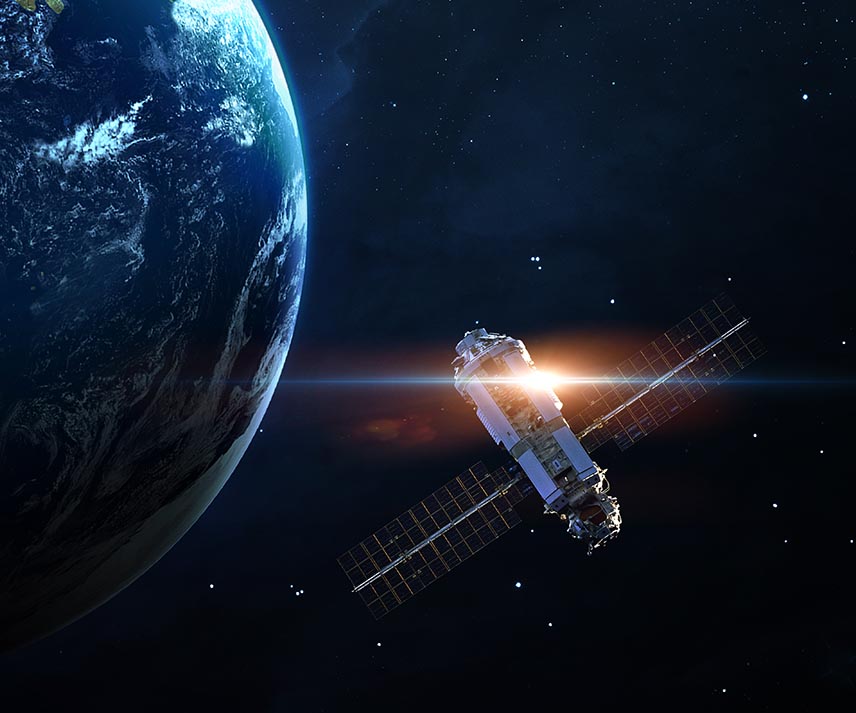
Join a project on the economics of space sustainability
Ensuring the sustainability of space systems is a major policy issue that is likely to become critical as society’s reliance on the space infrastructure continues to grow. The OECD and 11 space agencies are offering researchers and students the opportunity to join an ongoing international project on the economics of space sustainability.
FIND OUT MORE

Explore our interactive database of government space policies
More governments than ever before are engaged in space activities. Both new and experienced space nations are keen to learn more about the connections between their space programmes, broader research and innovation activities, and sustainable economic development, to facilitate policy evaluation and impact assessment. Explore data and insights on the main policy initiatives and instruments adopted by governments to support and assess their space activities.
EXPLORE




